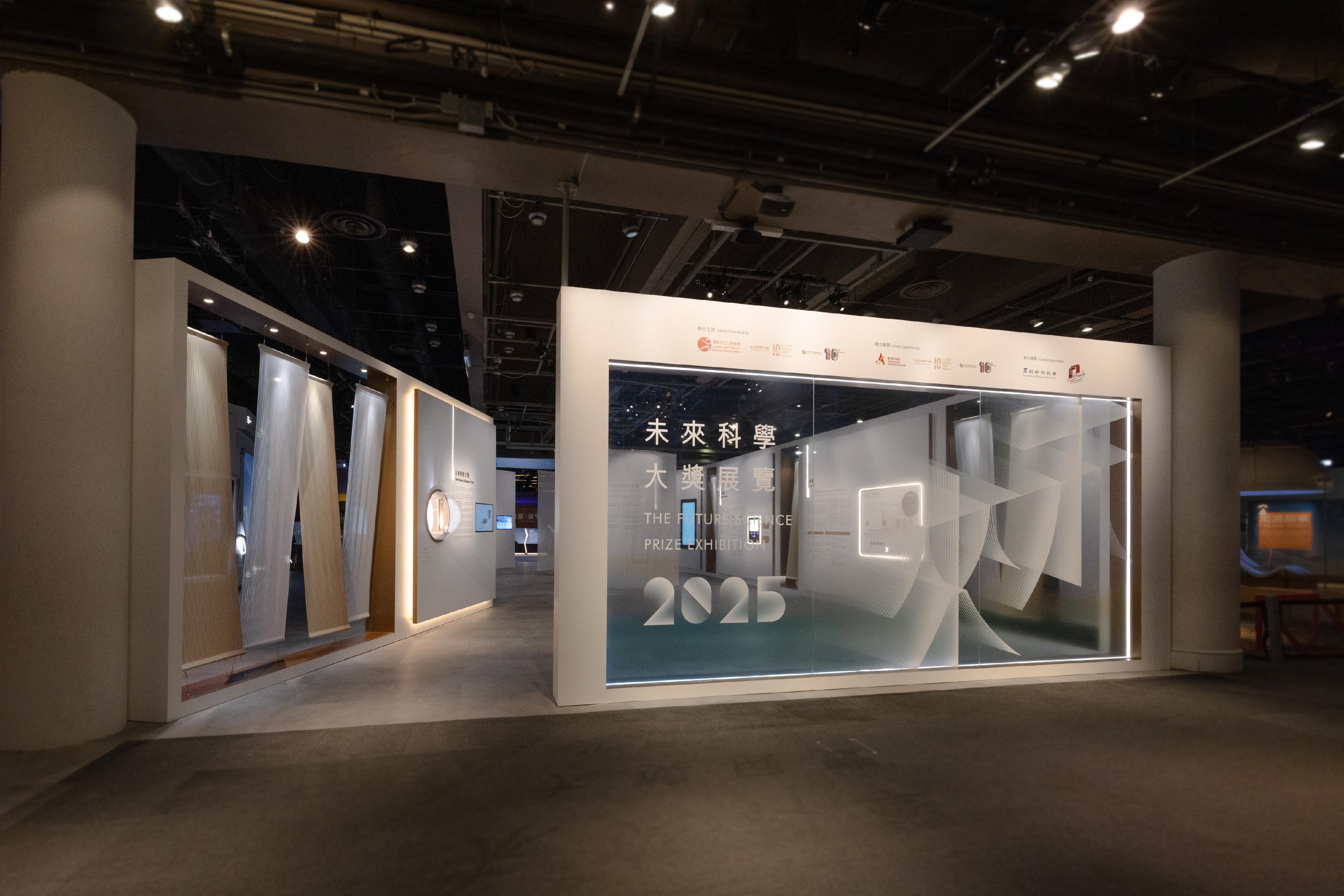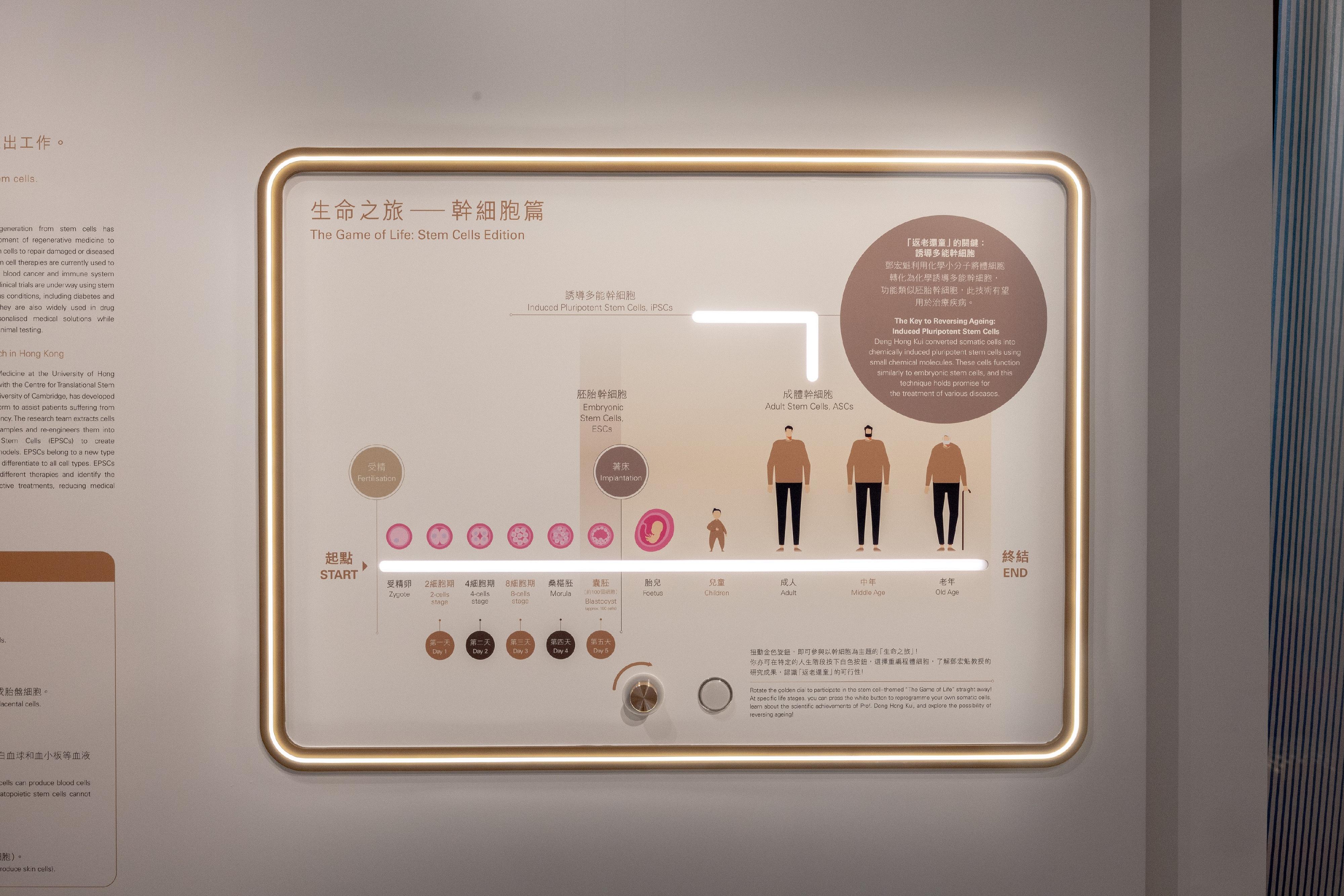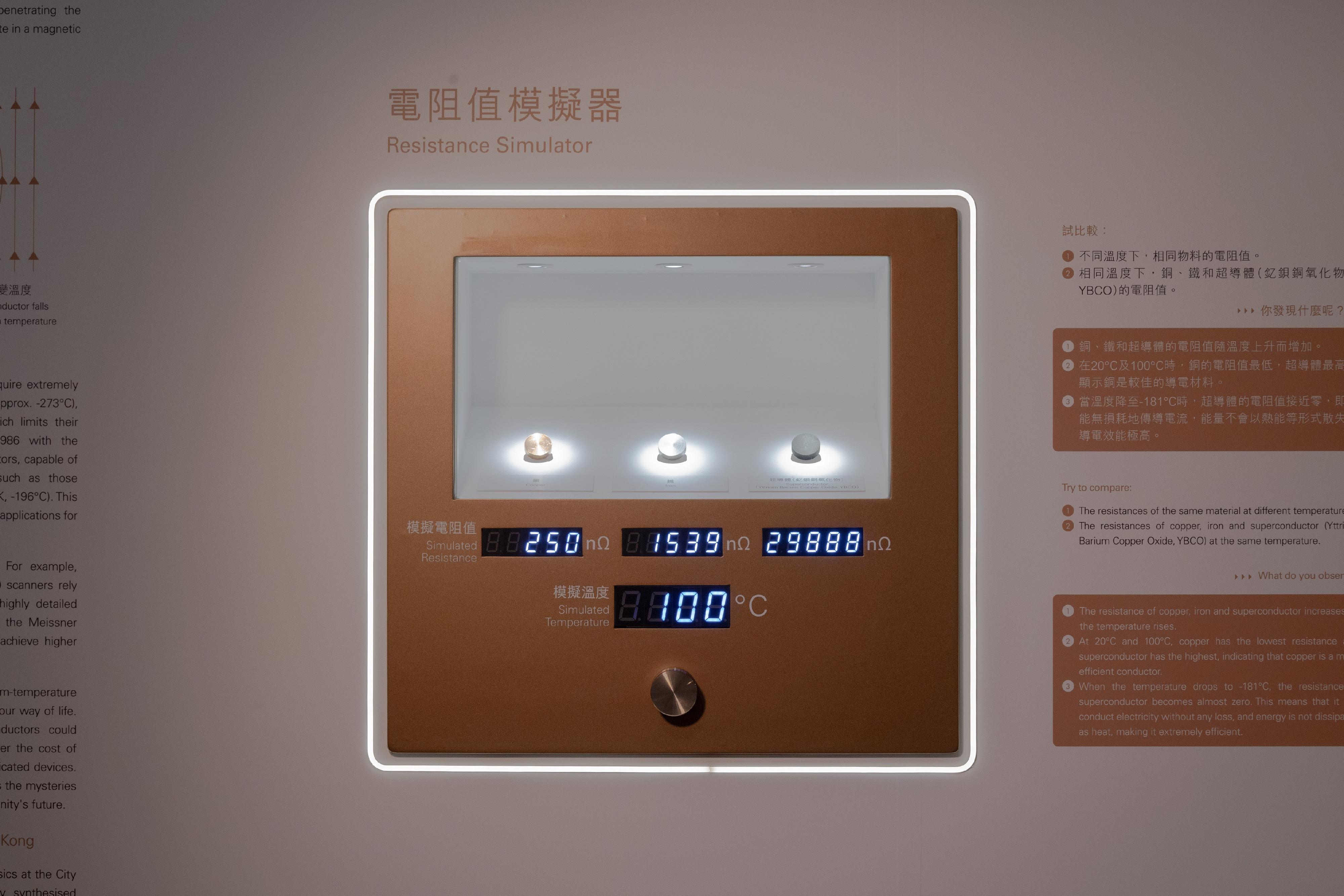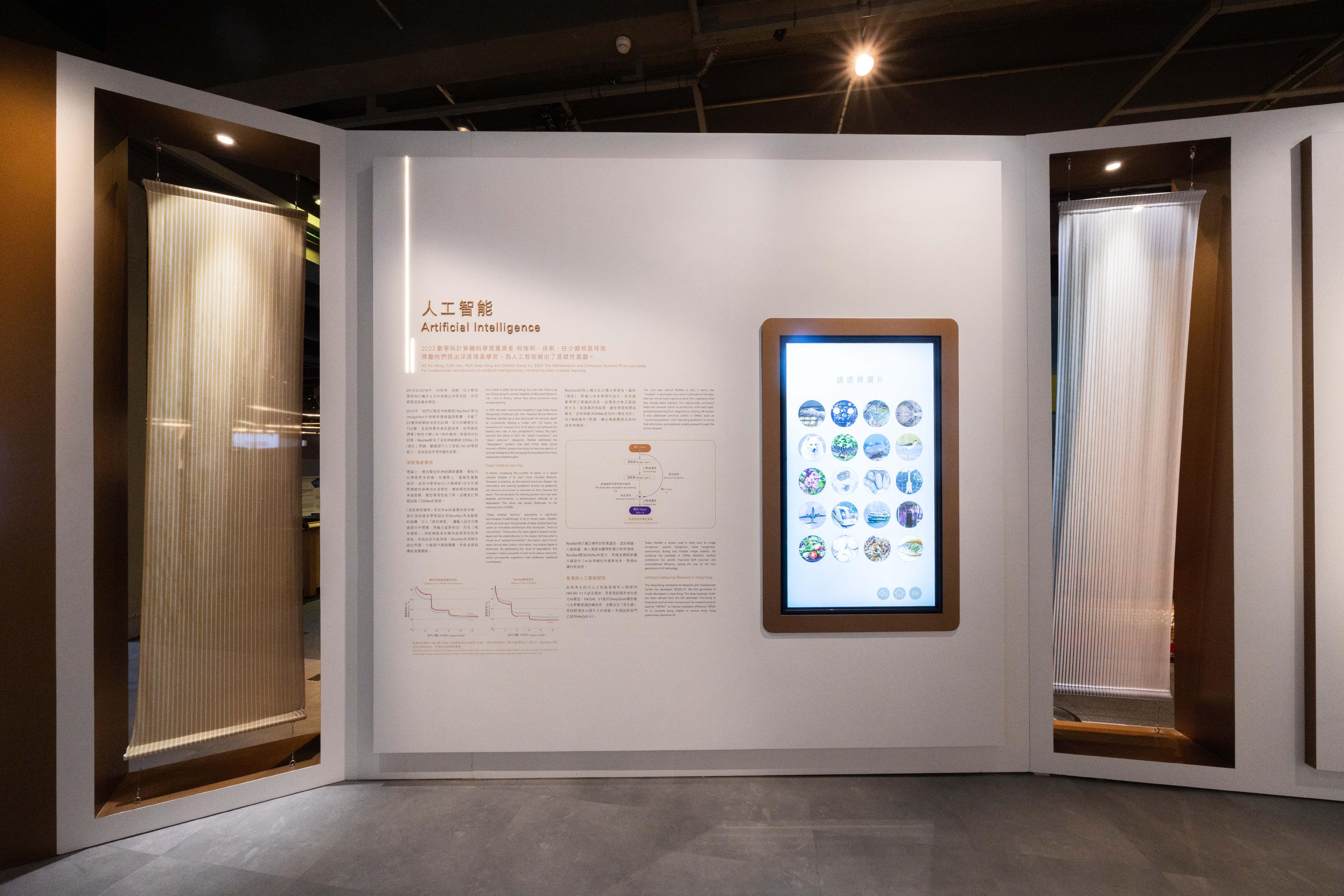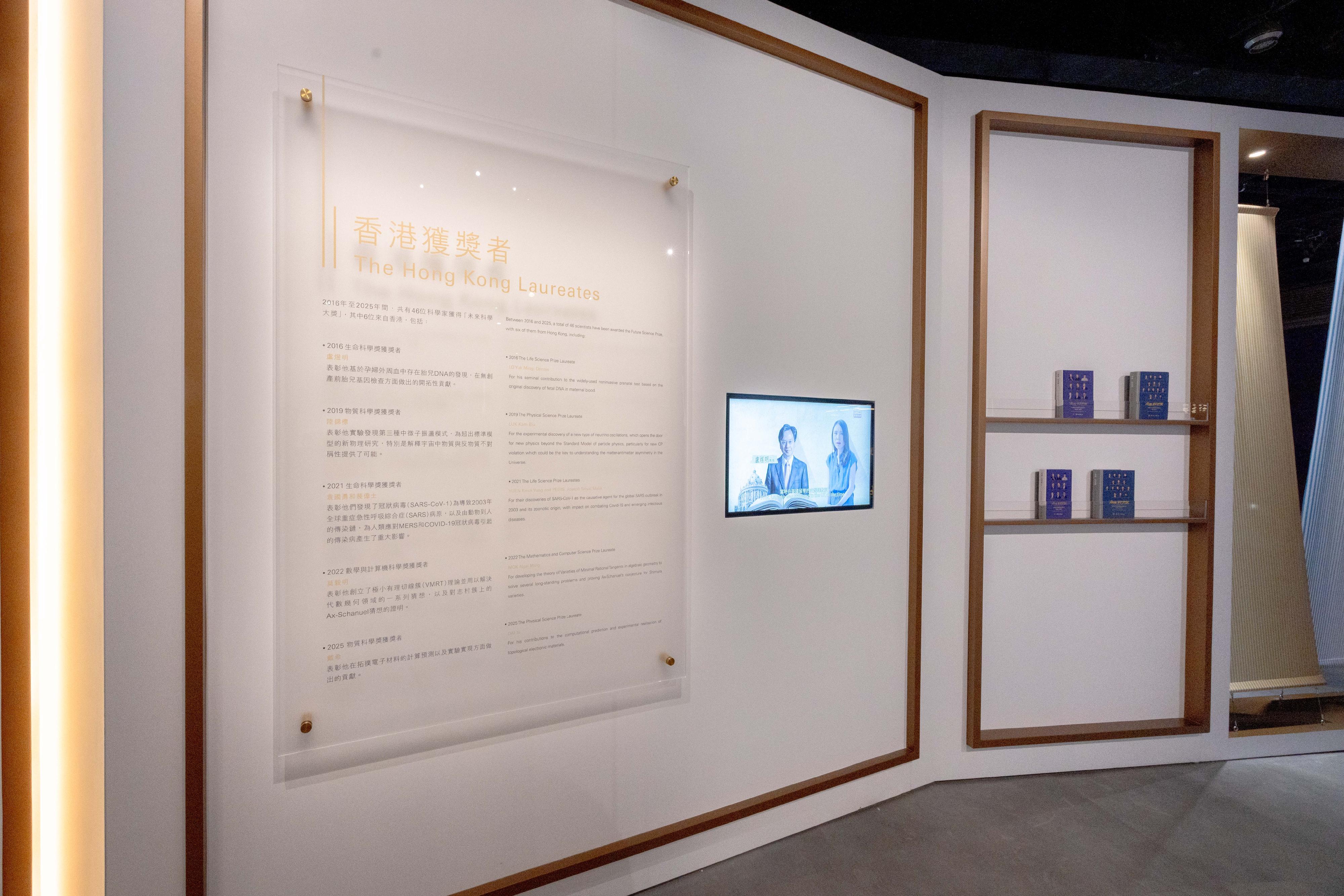Hong Kong Science Museum's "2025 The Future Science Prize Exhibition" introduces achievements of laureates (with photos)
******************************************************************************************
The Future Science Prize, regarded as China's "Nobel Prize", was established by the Future Science Awards Foundation in 2016. Initiated by a group of scientists and entrepreneurs, the prize presents three awards every year, aiming to give recognition to scientists who have achieved outstanding scientific results in the Chinese Mainland, Hong Kong, Macao or Taiwan, with the goal of inspiring China, the world and the next generation with the spirit of science.
The Life Science Prize laureates of the Future Science Prize this year are Distinguished Professor at Hebei GEO University, Ji Qiang, and Research Fellows at the Institute of Vertebrate Paleontology and Paleoanthropology of the Chinese Academy of Sciences, Xu Xing and Zhou Zhonghe. They are awarded for their discoveries of fossil evidence for the origin of birds from dinosaurs. The Physical Science Prize is awarded to Research Fellow at the Institute of Physics of the Chinese Academy of Sciences, Fang Zhong; the William M. W. Mong Professor of Nanoscience and Chair Professor of Department of Physics at The Hong Kong University of Science and Technology, Dai Xi; and the Chair Professor of the Tsung-Dao Lee Institute at Shanghai Jiao Tong University, Ding Hong, for their contributions to the computational prediction and experimental realisation of topological electronic materials. Semiconductor scientist, Lu Chihyuan, receives the Mathematics and Computer Science Prize for his innovations and leadership in advancing non-volatile semiconductor memory technologies, including cell density, device integration, and data resiliency.
Interactive exhibits are on display to enrich visitors' understanding of the achievements of laureates over the years. "The Game of Life: Stem Cells Edition" showcases the scientific achievements of 2024 the Life Science Prize Laureate, Deng Hongkui, who converted somatic cells into chemically induced pluripotent stem cells using small chemical molecules. The "Resistance Simulator" compares the resistances of copper, iron and superconductor at different temperatures to illustrate the research accomplishments of 2023 the Physical Science Prize Laureates, Zhao Zhongxian and Chen Xianhui, and demonstrate the properties of metals and superconductors. At the "AI Image Recognition Contest", visitors can experience the achievements in image recognition with the technique developed by 2023 the Mathematics and Computer Science Prize Laureates, He Kaiming, Sun Jian, Ren Shaoqing and Zhang Xiangyu. The exhibition also highlights the outstanding contributions of Hong Kong laureates over the years through videos.
In addition, the HKScM will organise the Science Symposiums on October 24 and 25, where world-renowned scientists will share scientific discoveries on cutting-edge topics. The laureates of this year will have a dialogue with the youth at the Hong Kong Space Museum on October 26 to interact and share with teenagers.
The exhibition is jointly presented by the Leisure and Cultural Services Department, the Future Science Awards Foundation and the Hong Kong Academy of Sciences, jointly organised by the HKScM, the Future Science Awards Foundation and the Hong Kong Academy of Sciences, and funded by the Innovation and Technology Commission. For details of the exhibition and activities, please visit the website at hk.science.museum/en/web/scm/exhibition/fsp.html.
Ends/Tuesday, September 30, 2025
Issued at HKT 19:50
Issued at HKT 19:50
NNNN





